The largest-ever investigation into labor practices in India's handmade carpet industry by Harvard University’s FXB Center for Health and Human Rights has revealed startling details of slavery and child labor.
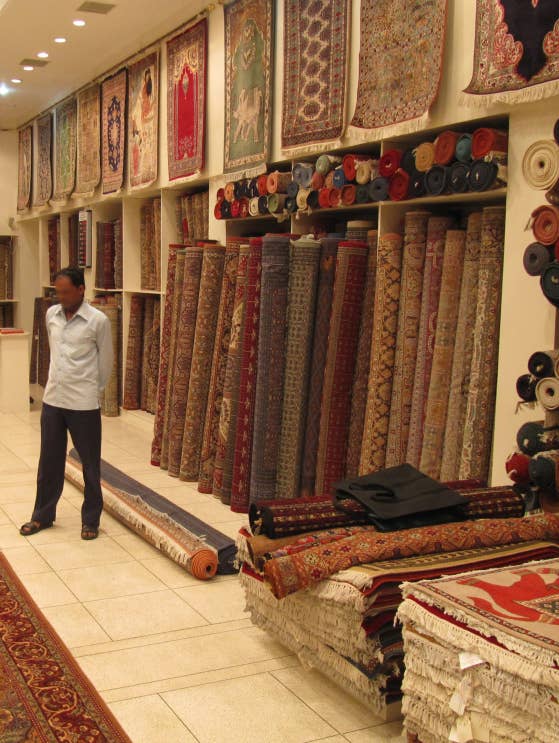
India is the world's largest exporter of handmade carpets which are sold to major U.S. retail chains including Macy's, Neiman Marcus, Bloomingdale's and Target.
However, the "Tainted Carpets: Slavery and Child Labor in India's Hand-Made Carpet Sector," written by Siddarth Kara, a Harvard lecturer and fellow on human trafficking, documented over 3,000 cases of forced labor and as many as 1,400 cases of child labor in the industry across nine northern states.
The report revealed horrifying details of sub-human working conditions, physical and verbal abuse, chronic underpayment, severe ailments and several other hardships endured by men, women, and children working in the industry, many of whom were sold into slavery.
In 2012, major U.S. retailers imported handmade carpets from India worth $306 million. An average hourly wage for carpet workers of $0.21.
In a press release, Kara said: "U.S. and Western consumers must become more aware of the atrocious conditions under which their carpets are woven. Those conditions must then be improved in a way that does not cause any ill effects to local populations."
Here are some of the report's most horrific findings:
The study documented 1,406 cases of child labor.
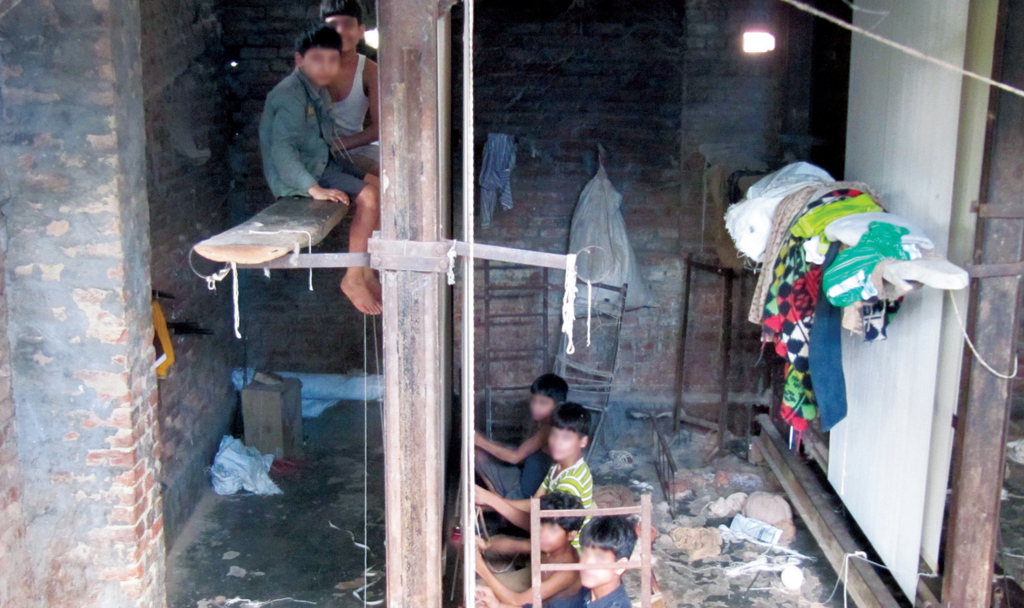
In a small town in the state of Rajasthan, 109 child laborers were documented out of a total of 114 cases. Approximately 91% of them were female.
The report described terrifying circumstances in which children as young as eight were forced to work.
"The scenarios typically involve shacks in remote rural areas into which
children have been trafficked. The children are kept locked inside, are beaten and verbally abused as they are forced to work up to 18 hours per day, are given minimal food and water, and suffer severe physical and emotional damage.
Many children worked, ate, and slept inside rural carpet shacks, rarely if ever stepping outside for weeks or months at a time."
"The children were too young, frail, and frightened to attempt to escape."
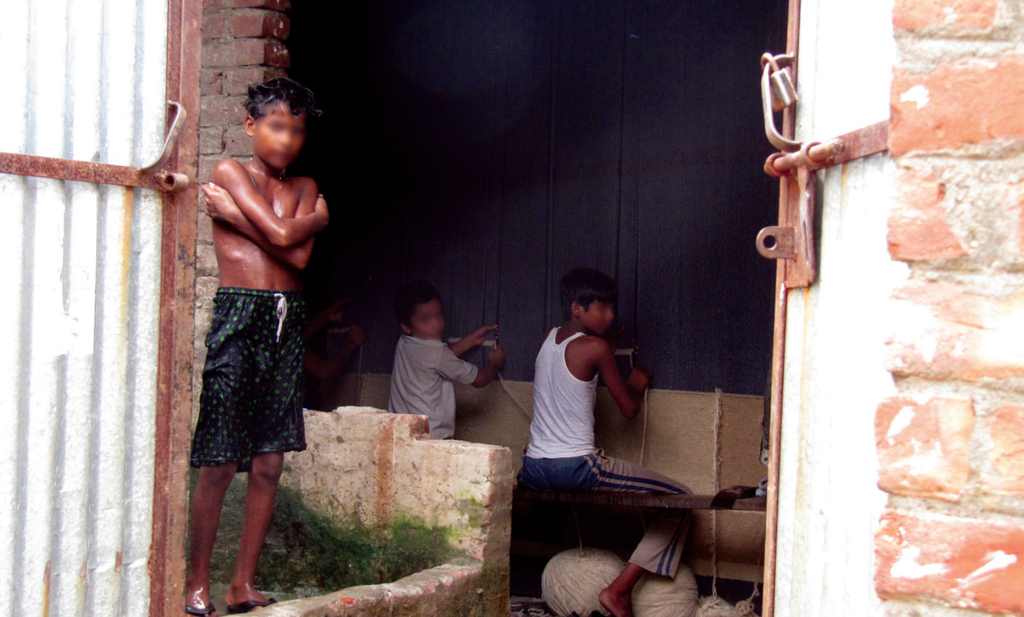
In the state of Bihar, the researchers found two "extremely filthy, dark, hot, and dangerous shacks" filled with 27 boys in "very poor conditions" who had been trafficked. The children were paid roughly $0.11 per hour.
Even though the shacks were unlocked, the report said:
"The children were too young, frail, and frightened to attempt to escape. They had suffered beatings for complaining and were terrified of punishment to them or harm to their parents should they disobey their captors.
They were also far from home in remote rural areas without any clear sense of where to go and what to do should they even try to escape."
"The working conditions are nothing short of sub-human."
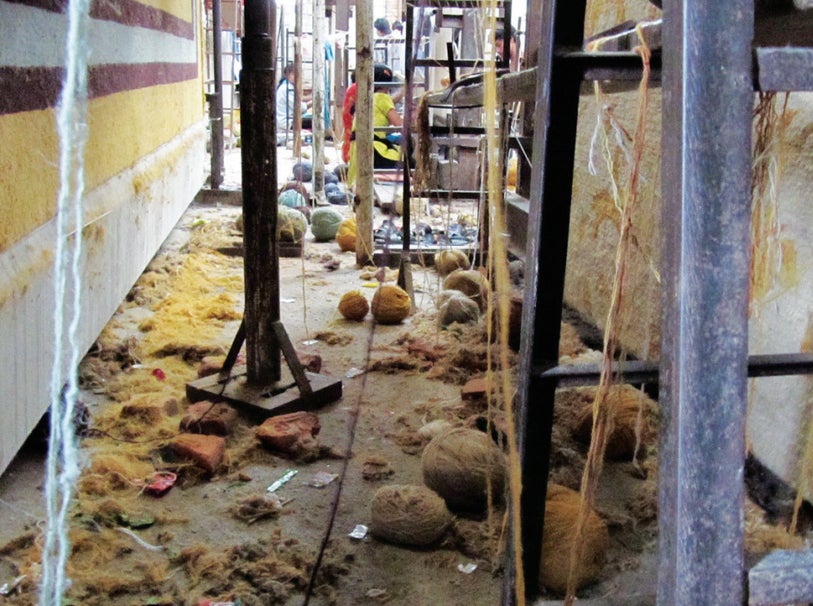
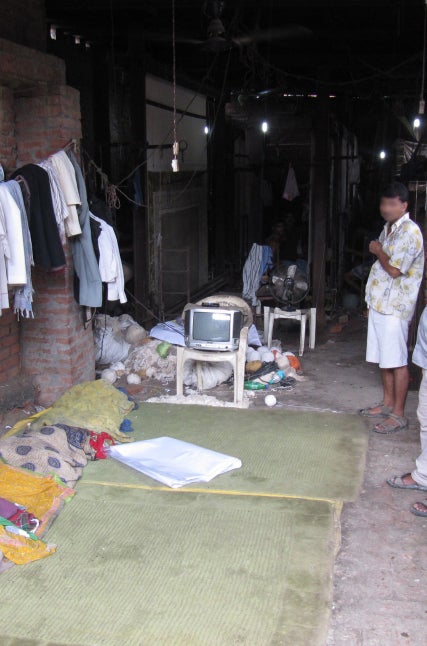
"Factories and shacks were cramped, filthy, unbearably hot and humid, imperiled with stray electrical wires and rusty nails, filled with stagnant and dust-filled air, and contaminated with grime and mold.
Some sites were so filthy, pungent, and dangerous that the researchers were afraid to enter due to the risk to their safety.
Physical and verbal violence against the workers was all too common."
The average hourly wage for carpet workers is $0.21.
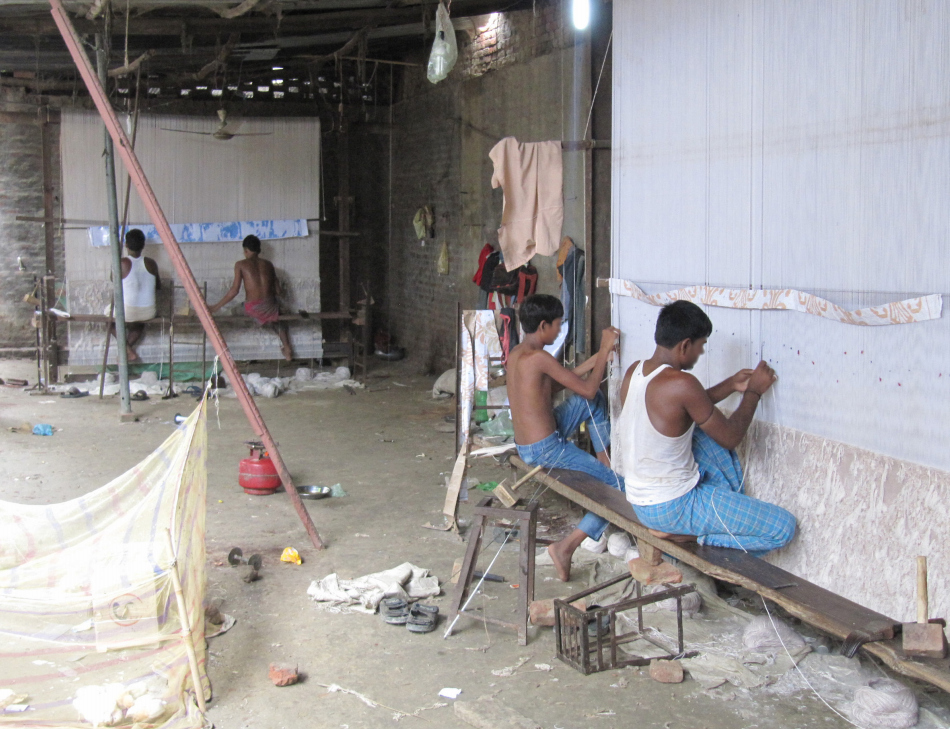
Workers toiled 10 to 14 hours a day in order to receive the minimum wage for
an eight-hour workday.
Minimum wages range from $0.37 to $0.50 per hour depending on the state. The workers documented in the study were paid less of what they were supposed to earn for eight hours of their work.
Most wages were also chronically delayed by anywhere between three weeks to three months.
Women and children were paid 12% to 32% less than adult males.
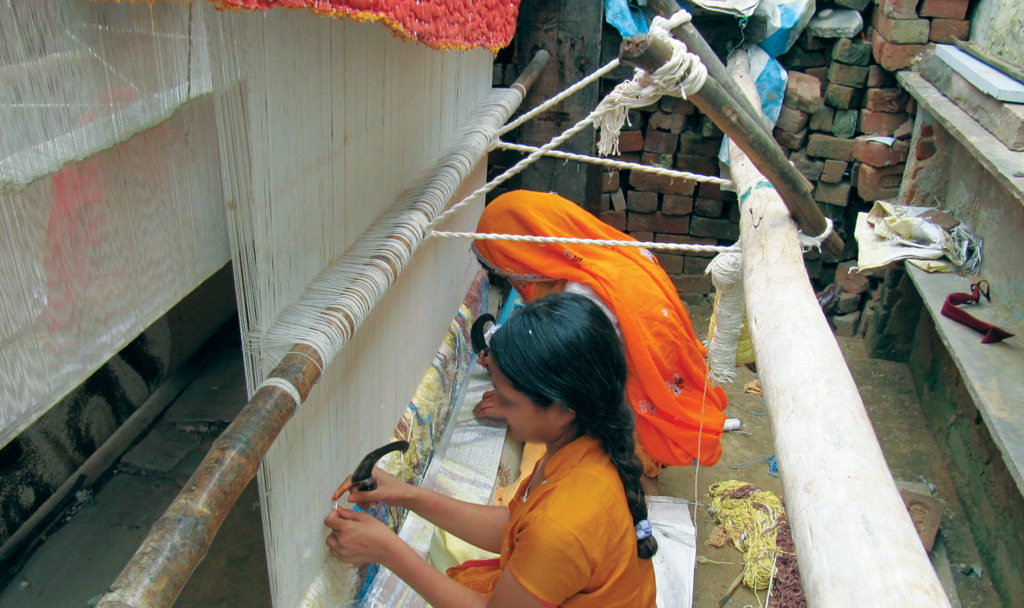
The researchers saw young women weaving while babies slept in their laps, exposing the infants to thread dust all day leading to substantial risks of pulmonary ailments.
Children of adult workers played amid stray electrical wires, rusty tools, and exposed nails.
The majority of minors working in the carpet industry are female.
Carpet weavers, especially children, suffered from several ailments including loss of vision, spinal deformation, malnutrition, and trauma because of hazardous working conditions.
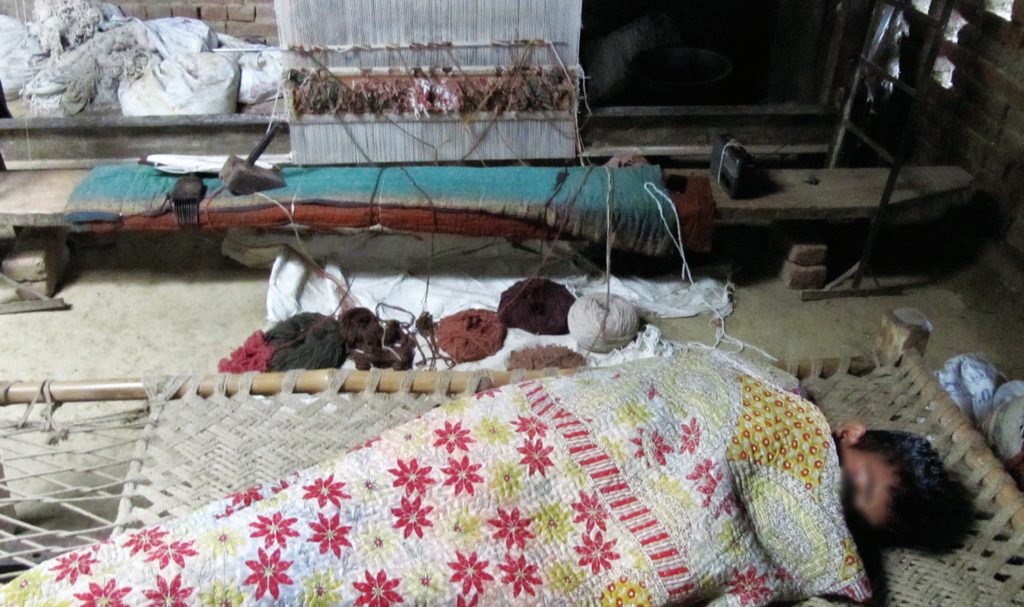
The weavers, especially children, were prone to several ailments because of severe labor exploitation such as working for more than 12 hours a day, eating only two meals, frequent beatings and abuses, and injuries due to sharp instruments.
They suffered from eye diseases because of insufficient light, spinal deformations due to being hunched for hours, muscle pain, headaches, malnutrition, pulmonary diseases, cuts, infections, and psychological trauma.
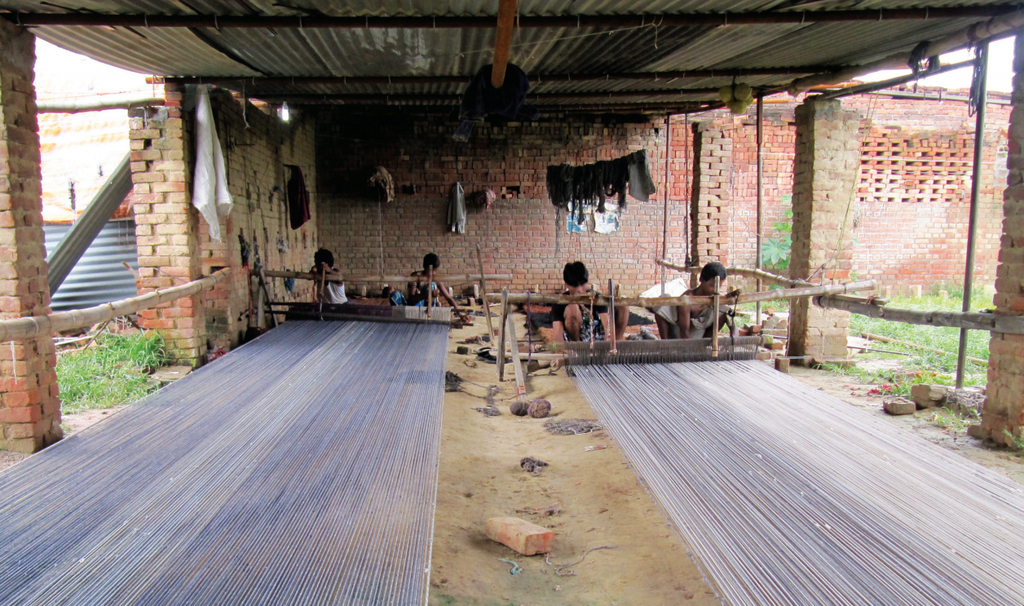
Laborers described their plight to the researchers:




Correction: In 2012, major U.S. retailers imported handmade carpets from India worth $306 million. An earlier version of this post misstated the value as $306 billion. (3/3/2014, 3:00 p.m.)
